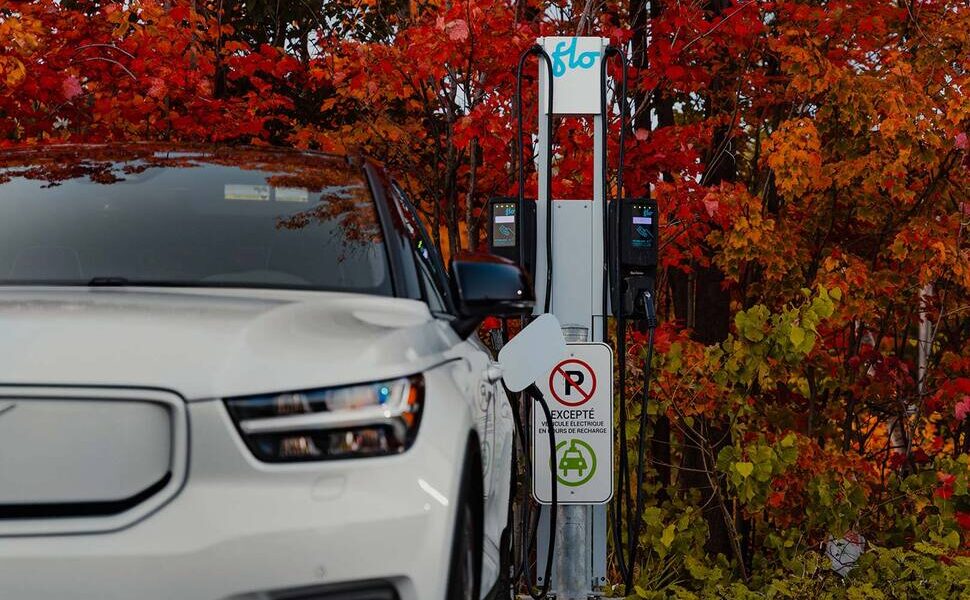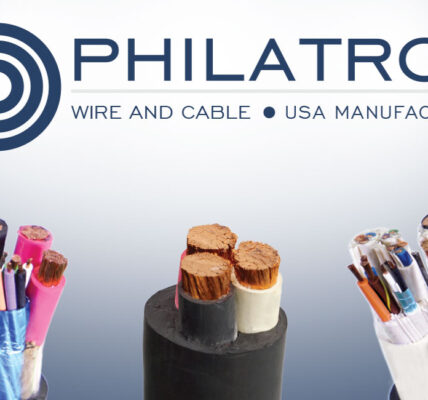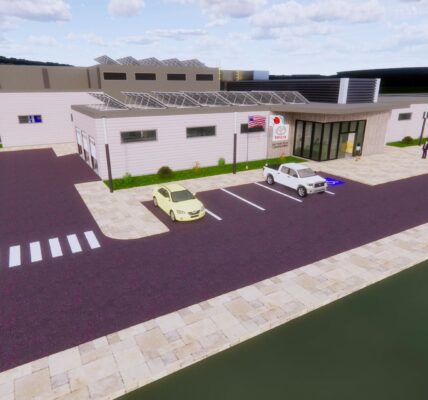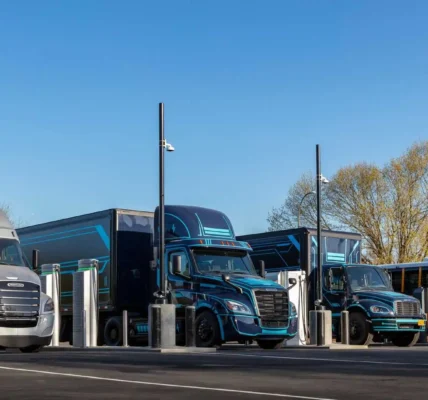The clean vehicle provisions of the Inflation Reduction Act favor affordable cars, battery packs and raw materials sourced from North America. The advantages of developing a domestic EV industry are plain. But what about where these EVs get their electricity?
A robust and reliable public charging network is clearly a priority if the U.S. is going to move from the current 7.1% electric market share to Biden’s goal of 50% by 2030. According to the Department of Energy’s Alternative Fuel Data Center, there are currently more than 51,000 public stations in the U.S. Crucially, Biden’s infrastructure bill from 2021 approved $7.5 billion to build an additional 500,000 public stations by 2030.
The funding is going to go to the states to “strategically” deploy EV charging, and to “establish an interconnected network to facilitate data collection, access, and reliability.”
It’s not just an issue of the public having access to nearby stations, they also have to be reliable. EV owners complain that the networks are chronically out of order. An academic study found that only 72.5% of the 657 DC fast chargers in the San Francisco Bay area – ground zero for EV deployment—were actually working. A British initiative would require the UK’s charging network to have a 99% reliability rate.
One North American network, Flo, based in Canada, claims 98% reliability. And, perhaps with an eye to snaring some of that U.S. federal charger money, the company announced on April 26 that it would build its Flo Ultra DC fast chargers at its facility in Auburn Hills, Michigan, near Detroit.
Flo spokeswoman Andrea Knapp told U.S. News, “We’re being pretty honest that the availability of Buy America funds was a factor in our coming to the U.S. – it certainly helped expedite it. And, of course, Michigan has a work force with a lot of relevant experience.”
According to Michigan Governor Gretchen Whitmer, “By embracing an all-electric future, Flo will help grow our economy, build and invest in our workforce, and ensure Michigan remains at the center of the U.S. auto industry. We congratulate Flo on the start of production at its Auburn Hills facility and can’t wait to see its EV chargers – assembled by Michiganders – deployed here and across the country.”
The 320-kilowatt dual-port Flo Ultra chargers, compliant with the Buy America Act and the National Electric Vehicle Infrastructure Formula Program, will be able to charge most EVs to 80% in 15 minutes. Flo plans to bring 250,000 chargers to the U.S. market by 2028, and create 730 jobs.
Flo is Canada’s largest charging company, with 360,000 members and a million charges per month at 71,000 existing chargers (Level 2 and above). In Canada, Flo will deploy 2,000 fast-charging ports by 2027, and to that end recently secured a $220 million (Canadian) loan commitment from the Canada Infrastructure Bank. The Flo chargers, installed within four years at 400 sites, will double the size of Canada’s fast-charging network. Flo will work with site hosts to install the chargers.
How does Flo manage to achieve such a good reliability rate, plus 92% customer satisfaction? At an event hosted by the Automotive Press Association, Flo said among its secret is the use of reliable parts in its chargers, 80% sourced in North America, with regular monitoring/maintenance via units set up for ease of servicing. Flo also uses a hybrid air and liquid cooling system to guard against damage from heat waves and takes measures against vandalism, including bright lights to deter crime. They also installed security devices (including cameras and microphones) that allow rapid contact with customers experiencing outages.








